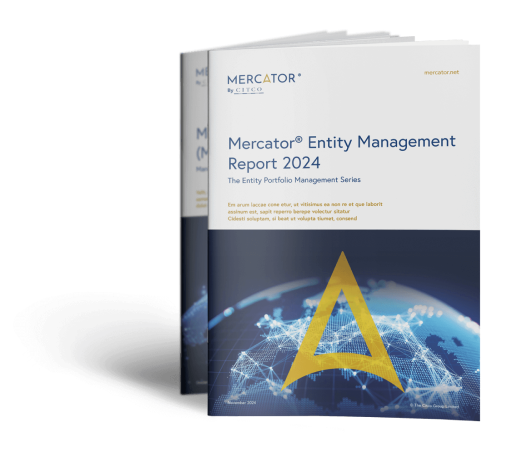The information contained in this document is marketing material and for informational purposes only. The information contained in this document is presented without any warranty or representation as to its accuracy or completeness and all implied representations or warranties of any kind are hereby disclaimed. Recipients of this document, whether clients or otherwise, should not act or refrain from acting on the basis of any information included in this document without seeking appropriate professional advice. The provision of the information contained in this document does not establish any express or implied duty or obligation between Citco and any recipient and neither Citco nor any of its shareholders, members, directors, principals or personnel shall be responsible or liable for results arising from the use or reliance of the information contained in this document including, without limitation, any loss (whether direct, indirect, in contract, tort or otherwise) arising from any decision made or action taken by any party in reliance upon the information contained in this document. © The Citco Group Limited, December 2024.
Navigating Entity Management in Qatar
Qatar’s business landscape offers significant opportunities for multinational companies, backed by strong financial resources and ambitious development plans.
However, its regulatory framework remains intricate and challenging, ranking among the most complex and costly jurisdictions for entity management. Currently, the regulatory environment is in transition, with recent business-friendly reforms focused on innovation, sustainability, and opening the market to foreign investment.
Digitalization Drive
Since 2019, Qatar has implemented comprehensive measures to digitalize government services, fundamentally transforming business-state interactions. The expanded Hukoomi e-government portal now handles most administrative procedures online, with critical documents like Commercial Registration Certificates issued exclusively in digital format.
This digital transformation represents a cornerstone of Qatar National Vision 2030, the country’s blueprint for economic diversification. Alongside this, the government has launched targeted initiatives supporting digital adoption, and worked to simplify and digitize many administrative procedures, reducing processing times for permits, license and company registration. Efforts have also been made to provide clearer guidelines and information for businesses and investors, through online portals and dedicated support services.
Despite significant progress, multinationals still face challenges including:
- Limited Public Access to Corporate Information: The absence of public registers impedes transparency and complicates due diligence.
- Inconsistencies in Bilingual Documentation: English versions often contain inaccuracies or incomplete information.
- Gaps in Digital Records: Digitalization hasn’t been comprehensively retroactive, creating potential gaps in historical corporate data.
- Stringent Regulatory Compliance: Authorities mandate strict adherence to regulations, with severe consequences for violations.
Regulatory updates
- Amendments to Commercial Companies Law: Law Number 8 of 2021 simplifies company formation procedures and allows single-person limited liability companies.
- Commercial Registration Law Reform: Qatar’s new Commercial Registration Law, expected in 2025, aims to streamline business operations and reduce regulatory complexities.
- Bankruptcy and Public-Private Partnership Legislation: There are also plans to introduce new laws pertaining to bankruptcy proceedings and public-private partnerships. These laws are projected to be enacted during 2025.
- Anti Money Laundering Legislation: Qatar has actively strengthened its AML and CFT regulations in recent years, aligning them with international standards.
Risks of Non-Compliance
The Qatari authorities enforce strict adherence to regulatory timelines and requirements. Penalties for non-compliance can be significant, including substantial financial penalties (sometimes calculated as a percentage of company turnover or profits), business suspension, criminal charges, deportation, asset freezing, and reputational damage. Examples include:
- Tax Card Acquisition: New companies must obtain a Tax Card within 60 days of licensing or face a penalty of 20,000 Qatari Riyals (QAR).
- Corporate Tax and Annual Return Filings: Penalties apply for late submissions of corporate tax returns and annual financial statements.
- UBO Disclosure: Non-compliance with Ultimate Beneficial Ownership disclosure requirements may trigger severe penalties, including suspension of the business entity and its key personnel (managers, directors, secretaries, and executives) for up to one year.
Key considerations for Entity Management in Qatar
1. Language and Documentation Requirements
While Arabic is Qatar’s official language for legal documents, English is widely used in business. Documents often require both languages, with proper translation and attestation essential. Many businesses opt to engage local consultants familiar with cultural nuances and documentation requirements.
2. Legal Structures and Foreign Ownership:
Qatar offers diverse legal structures, each with specific requirements. Recent developments allow 100% foreign ownership in designated sectors, though limitations persist in oil and gas, banking, and insurance.
3. Compliance and Reporting Requirements:
Multinational operating in Qatar must adhere to:
- Corporate Governance: Maintaining accurate records and complying with governance standards
- Financial Reporting: Filing statements according to IFRS
- UBO Regulations: Disclosing ultimate beneficial owners
- Taxation: Timely filing of tax returns
4. Local Labour Market Regulation
The Qatarisation policy imposes quotas on the employment of Qatari nationals in various sectors, which can present challenges for international companies in workforce composition.
Ifueko Evbuoma
Senior Legal Officer, Mercator by Citco, Citco Mercator, UAB
Justina Palske
Senior Legal Officer, Mercator by Citco, Citco Mercator, UAB

